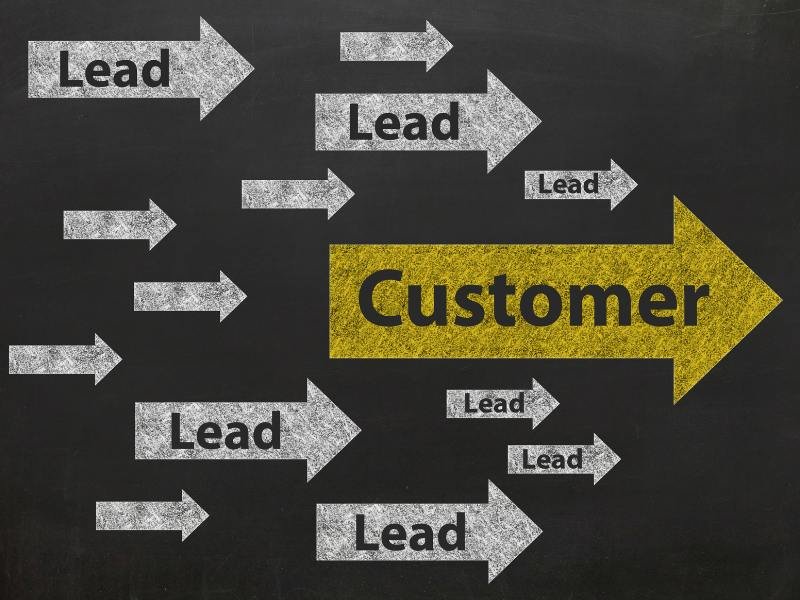In today’s competitive business environment, understanding the concept of lead generation in digital marketing is crucial for any marketer or business owner striving to thrive. Lead generation is essentially the process of attracting and converting strangers and prospects into someone who has indicated interest in your company’s products or services. Here’s a deeper look into what lead generation involves, why it’s essential, and how you can effectively implement it to fuel your business growth.

Understanding Lead Generation
Lead generation is a core activity of digital marketing where the primary goal is to gather contact information from potential customers (leads). This information typically includes names, email addresses, or phone numbers obtained through various online channels. These channels can be your business website, social media platforms, or through other online content via techniques such as content marketing, online advertising, and email marketing.
Why is Lead Generation Important?
Lead generation is vital because it helps businesses build a sales pipeline by capturing the interest of potential customers. It allows companies to:
- Nurture prospects: Once someone shows interest in your business, you can nurture that interest through targeted communications, gradually leading them down the sales funnel.
- Increase brand awareness: Effective lead generation strategies can help more people become aware of your brand, ultimately contributing to higher sales conversions.
- Target desired customers: By using specific criteria to identify potential leads, businesses can tailor their marketing efforts towards the right audience, increasing the effectiveness of their marketing spend.
Key Strategies for Effective Lead Generation
Content Marketing
Provide valuable content that solves problems or answers questions for your target audience. This could be through blogs, infographics, eBooks, or videos that educate and engage potential customers.
Social Media Marketing
Use platforms like Facebook, Instagram, and LinkedIn to connect with and engage your audience. Social media can be a powerful tool for promoting your content and special offers to generate leads.
Email Marketing
Once you have contact information, you can use email marketing to communicate directly with potential leads, providing them with tailored content and offers that could convert them into customers.
Search Engine Optimization (SEO)
Optimize your website and content to rank higher in search engine results for keywords related to your products or services. Higher visibility in search results can lead to more website visitors, increasing your chances of generating leads.
Pay-Per-Click (PPC) Advertising
Utilize PPC campaigns to place ads on search engines and other platforms. You pay a fee each time someone clicks on your ad, but if designed effectively, these clicks convert into leads.
Challenges in Lead Generation
While lead generation is a powerful component of digital marketing, it comes with its challenges:
- High competition: Many businesses compete for the attention of the same audience, making it harder to stand out.
- Lead quality: Generating a high number of leads doesn’t guarantee their quality. It’s essential to focus on attracting leads that are likely to convert into customers.
- Resource intensive: Effective lead generation requires constant effort, testing, and refinement, which can be resource-intensive.
Conclusion
Lead generation is an indispensable part of digital marketing that plays a critical role in a business’s growth strategy. By understanding and implementing effective lead generation techniques, businesses can significantly enhance their market reach, increase their sales, and boost overall profitability. Remember, the key to successful lead generation is not just in attracting leads but in converting them into loyal customers.
Frequently Asked Questions (FAQs)
1. What is lead generation in digital marketing?
Lead generation is the process of attracting and converting strangers into prospects who show interest in your products or services usually by collecting their contact information through websites, ads or social media.
2. Why is lead generation important for my business?
Lead generation helps build your sales pipeline, increases brand visibility and ensures you’re targeting people who are more likely to convert – ultimately leading to more sales and business growth.
3. What are the best digital channels for lead generation?
Some of the most effective channels include your website, social media platforms, email marketing, SEO, and pay-per-click (PPC) advertising. Each channel can capture leads in different ways depending on your strategy.
4. How does content marketing help generate leads?
By offering valuable content like blog posts, eBooks or videos – you attract potential customers and encourage them to share their contact information in exchange for useful resources.
5. Can social media really help with lead generation?
Yes. Social media platforms like Instagram, Facebook and LinkedIn allow you to reach a targeted audience, promote lead magnets and drive users to your website or landing pages for conversion.




